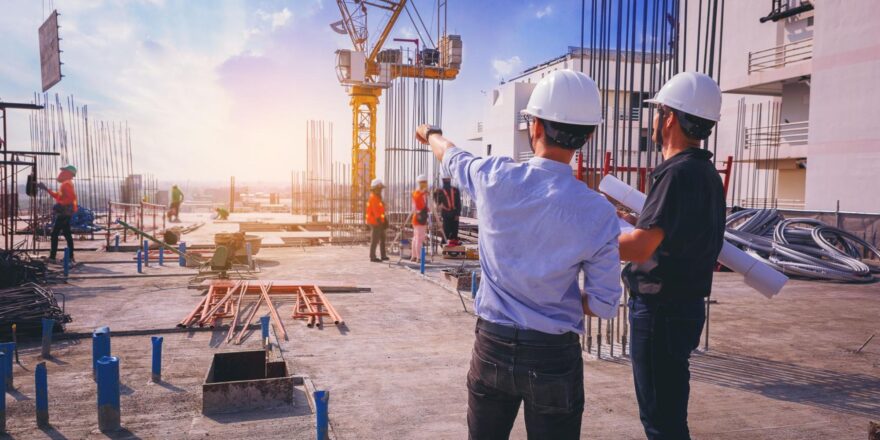Energy Efficiency in New Construction: Building Greener and Saving Money
Queen Creek, nestled in the picturesque Sonoran Desert of Arizona, is a rapidly growing community known for its vibrant real estate market and a commitment to sustainable living. With its stunning natural landscapes and booming development, Queen Creek offers an ideal setting for individuals seeking to invest in energy-efficient new construction projects, aligning the allure of modern living with eco-conscious choices. As the world grapples with environmental challenges, one key area that people can consider investing in Queen Creek’s new builds is energy-efficient construction. Queen Creek, known for its growing real estate market, offers an excellent opportunity for individuals to build greener homes while saving money in the long run. Energy efficiency in new construction is a responsible choice for the environment and a financially wise decision.
Understanding Energy Efficiency
Energy efficiency in new construction is a concept that involves careful planning and design to minimize the energy required to run a building. This encompasses various aspects, from the choice of building materials to implementing advanced technologies. Understanding energy efficiency means recognizing that small changes in design and construction can lead to significant reductions in energy consumption. It’s about creating a building that maximizes its performance while minimizing waste.
To achieve energy efficiency in new construction, architects and builders focus on insulation, windows, doors, and roofing materials. They select materials that offer superior thermal properties, reducing the need for excessive heating or cooling. Additionally, the orientation of the building and the placement of windows play a crucial role in harnessing natural light and heat, further reducing energy demand.
Environmental Impact
The environmental impact of traditional construction methods cannot be underestimated. Conventional buildings often rely on energy-intensive materials like concrete and steel, which contribute to high carbon emissions during production. Furthermore, the energy required to heat, cool, and power these buildings adds to their environmental footprint.
Energy-efficient construction takes a different approach. It prioritizes using sustainable and eco-friendly materials, such as recycled or reclaimed wood, low-VOC paints, and energy-efficient appliances. Additionally, these buildings incorporate renewable energy sources like solar panels and wind turbines, reducing their reliance on fossil fuels. Energy-efficient construction plays a vital role in mitigating the environmental impact of new builds by reducing greenhouse gas emissions and resource depletion.
Cost Savings Over Time
While energy-efficient construction may require a slightly higher initial investment, it pays off handsomely in the long run. The key to understanding this benefit lies in recognizing that energy-efficient homes are designed to operate efficiently, resulting in lower utility bills.
Advanced insulation and high-performance windows and doors keep the indoor temperature stable, reducing the need for constant heating or cooling. Energy-efficient appliances, such as Energy Star-rated HVAC systems and LED lighting, consume less electricity. Moreover, renewable energy sources like solar panels can generate surplus energy that can be sold back to the grid, providing additional savings.
Over the years, the accumulated savings on energy bills often surpass the initial construction costs, making energy-efficient homes a smart financial choice.
Enhanced Comfort and Quality of Life
Energy-efficient homes are synonymous with comfort and a higher quality of life. These buildings are designed to maintain consistent indoor temperatures, eliminating drafts and uncomfortable hot or cold spots. The result is a living space that is consistently cozy, regardless of the season.
Moreover, energy-efficient construction often includes advanced ventilation systems that filter and circulate fresh air throughout the home. This improved indoor air quality reduces the risk of allergies and respiratory issues, contributing to a healthier living environment.
Residents of energy-efficient homes enjoy a quieter ambiance as well. Enhanced insulation and soundproofing materials minimize external noise, providing peace and tranquility inside the house. Overall, an energy-efficient home’s comfort and quality of life are unparalleled.
Longevity and Durability
Energy-efficient homes are built to last. The use of high-quality materials, coupled with meticulous construction techniques, ensures the structure’s durability. These homes are less susceptible to wear and tear, weather-related damage, and other factors that can lead to costly repairs.
Energy-efficient features like properly sealed windows and doors and advanced roofing materials offer superior protection against the elements. This means fewer leaks, less moisture intrusion, and a reduced risk of structural damage over time.
The longevity and durability of energy-efficient homes translate into reduced maintenance costs and a longer lifespan for the building, making them an excellent investment for homeowners.
Conclusion
In conclusion, energy efficiency in new construction is a multifaceted concept encompassing various aspects, from design and materials to environmental impact and financial benefits. It’s about creating buildings that are not only environmentally responsible but also financially sound. Understanding energy efficiency means recognizing the importance of sustainable materials, efficient design, and integrating renewable energy sources.
Energy-efficient construction in Queen Creek’s new builds is a wise choice, as it reduces the carbon footprint and leads to significant cost savings over time. These homes offer enhanced comfort and a higher quality of life thanks to their consistent indoor temperatures, superior indoor air quality, and noise-reducing features. Furthermore, energy-efficient homes are built to last, minimizing maintenance costs and ensuring long-term durability.
Investing in energy efficiency can also increase the property value, making it a lucrative choice for homeowners. As the real estate market evolves, energy-efficient construction is a forward-thinking and responsible approach, promising Queen Creek residents a greener, more cost-effective, and environmentally conscious future.
